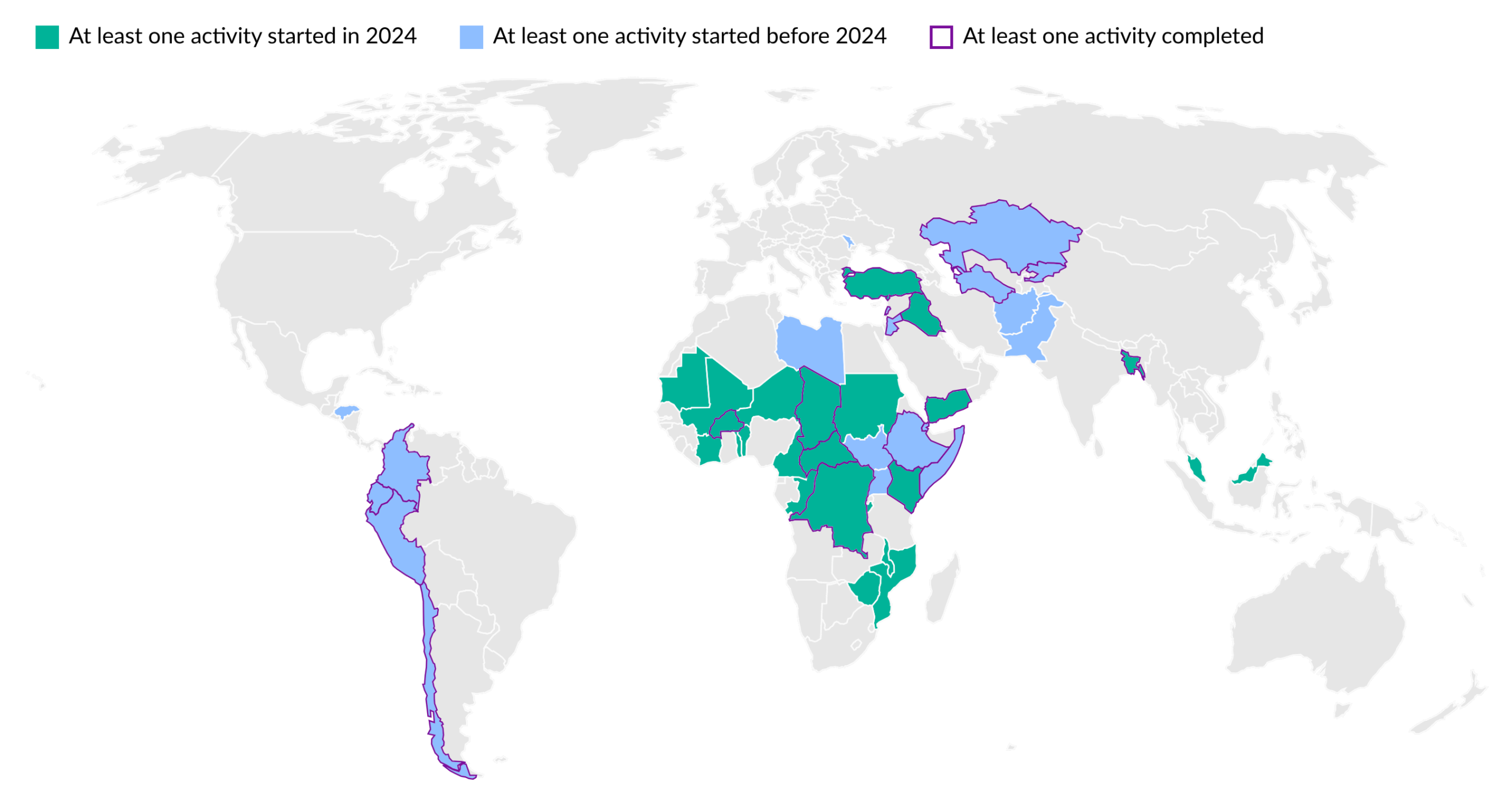The JDC in 2024: From Data and Evidence to Impact
In 2022, an investment case study conducted by Dalberg and published by the Global Partnership for Sustainable Development Data indicated that investments in data show an average economic benefit of US$ 32 for every dollar invested. Yet, despite this very high return, investments in data systems remain limited, especially in low- and middle-income countries. Recognizing this, the Ministers and Senior Officials who gathered last month for the Eleventh Session of the Africa Regional Forum on Sustainable Development in their draft declaration, called upon international stakeholders to scale up significantly their investment in statistical systems. The document highlighted the importance of the innovative use of non-traditional data sources and the enhanced collection and use of disaggregated data for evidence-based, science-driven, and inclusive approaches and action on all the Sustainable Development Goals.
The Forum also featured a side event on the role that evidence can play in the creation of jobs and the economic growth in refugee-hosting areas. The event underscored the critical need for including refugees in economic frameworks, fostering private sector engagement, and ensuring collaborative efforts among stakeholders to create jobs and develop sustainable solutions. The JDC contributed to the event by illustrating how data and evidence can and need to guide these efforts.
Investing in data and evidence for better policies, strengthening data systems, engaging with multiple partners on statistical systems, fostering the use of innovative methods: these multiple calls are exactly what the JDC has been acting on. Implementing its Strategy for 2024-2027, in 2024 the JDC has delivered a rich portfolio of country, regional and global activities while continuing to expand its work program in line with national and regional priorities, to respond to operational data needs, support policy dialogue, and fill important knowledge gaps.
The JDC is currently supporting more than 43 activities, spanning across all four strategic priorities. These complement the 43 already completed in the past years, and more activities are being added to our portfolio on a regular basis in collaboration with UNHCR and the World Bank, and through them with other partners.

One common thread links all these JDC-supported projects: operational impact. We work with partners and stakeholders to reduce institutional barriers and facilitate the uptake of data and evidence in projects, programs, and policy. For example, the JDC-supported report Expanding Development Approaches to Refugees and Their Hosts in Ethiopia, published in 2024, informed a new government directive that legalizes refugee and asylum seeker employment in Ethiopia. Similarly, and in a very different context, the results from the report Venezuelans in Chile, Colombia, Ecuador, and Peru: A Development Opportunity have informed humanitarian needs assessments, development program planning, and policy making, including Colombia’s Strategy for the Integration of Venezuelans and Chile’s National Migration Policy.
We are pleased to see that more and more of our activities are impacting decisions affecting those forcibly displaced and their hosts, in very different situations, from Afghanistan to South Sudan, Bangladesh, and Lebanon. You can read more about our achievements in the JDC’s Annual Report 2024. Our work does not end with supporting data production. It is about changing how we collectively respond to forced displacement using data and evidence for impact to concretely deliver on UNHCR Sustainable Responses and World Bank Development Approach to forced displacement.

Aissatou Maisha Dicko
Head of the World Bank-UNHCR Joint Data Center on Forced Displacement
Literature review
Our literature review delves into recent research on forced displacement in Ethiopia, Ghana, Jordan, Kenya, Lebanon, Malawi, Mozambique, Somalia, Uganda, and Zambia, focusing on themes such as food security, women empowerment, health, living conditions, cash transfers, and social protection.
Explore our latest literature review and previous editions, organized by categories and countries, on our website.


